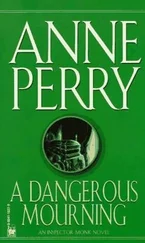1 ...8 9 10 12 13 14 ...17 “We only inform next of kin,” replied Dr Harper flatly. “Right now, I’m more concerned with the after-effects of your husband’s injuries. I have to warn you, Mrs Wolfe, there’s a problem. He probably won’t remember who you are.”
Caitlin’s jaw sagged. She had barely recovered from the shock of learning that she was going to have to break the news to Nathan’s father, a man whom she’d never even met, and Dr Harper’s words left her weak.
“I beg your pardon,” she began, her mouth dry and taut with tension, and the doctor attempted to explain what he had meant.
“It’s quite common, really,” he told her, though Caitlin was equally sure it was not common at all. “Your husband is suffering the effects of being involved in a serious—not to say, traumatic—accident. In many cases of this kind, a temporary neurosis can occur.”
“You mean—there’s some psychological problem?”
“I mean that anyone involved in such a situation can conceivably suffer some kind of mental block.”
“Mental block?”
“Mrs Wolfe.” He was obviously trying to be patient, but he’d dealt with a lot of anxious relatives already that morning, and he was tired. “Your husband appears—I say, appears —to be quite normal. He has one or two minor injuries—cuts and bruises, that sort of thing—and when he was admitted, he was suspected of having a couple of cracked ribs and a dislocated shoulder.” He paused. “All of which have been dealt with. He’s in a state of shock, of course, and I wouldn’t say he was fit to travel. But compared to some of the other—passengers—I’ve seen, he’s in fairly good shape.”
“But …?”
Caitlin sensed there was more, something the doctor wasn’t telling her, and Harper gave her a weary look before continuing with his diagnosis.
“But,” he agreed with a sigh, “he can’t remember anything.”
“About the accident? But surely—”
“Before the accident, and the accident itself,” Harper interrupted her heavily. “It may be a temporary condition as I say. It’s too soon to tell, and often the victims of car crashes, explosions, that sort of thing, suffer a short-lived amnesia. That may well be all we have to deal with here. But with head injuries, anything is possible.”
Caitlin swallowed. “You didn’t mention he’d injured his head.”
“Because he hasn’t,” declared Harper levelly. “Unless you count the bruise we found on his temple. We’ve done a scan, and we’ve found no internal bleeding. Nothing that might be causing pressure on his brain.”
“Then—”
“Mrs Wolfe, what can I tell you? For the present, there’s nothing more to be done. You must be prepared for him not to recognise you, that’s all. That’s why I wanted to speak to you before you saw him. I don’t want you to upset him. I just wanted you to know what to expect.”
He had the most God-awful headache. There were times when it felt as if there was an army of blacksmiths hammering away inside his skull. Just moving his head on the pillow sent a spasm of pain spiralling to his brain. A brain, which he had to admit felt like mashed banana, and just about as much use to him besides.
At least he still appeared to be in one piece. He might have a stinking headache, but his brain was still functioning, albeit at half power. Some of the poor devils in the beds around him didn’t even know which day it was. And the head injuries one of his fellow patients had sustained made him feel quite weak.
Well, weaker than he did already, he amended wryly, aware that right at this moment, he couldn’t have punched his way out of a paper bag. Dammit, even his legs felt like jelly. And although they’d assured him it was just delayed shock, he couldn’t seem to stop shaking.
It must have been one hell of a mess, he thought, not envying the fire crews and paramedics who had had to deal with the aftermath of the crash. Bodies everywhere, most of them well beyond the help of anyone in this world. And the screams—oh, God!—he could remember them. He doubted he’d ever get them out of his head.
Which was strange when so much else was gone. He didn’t remember getting on the plane. He didn’t even remember where he had been going. But most disturbing of all, he didn’t remember his name, or any damn thing about himself.
He didn’t remember the actual crash, either—just the horror of finding himself on the ground, surrounded by the cries of injured people. Someone had told him, he didn’t remember who, that he’d been thrown clear when the plane ploughed into the end of the runway. By some uncanny quirk of fate, the fuselage had fractured near his seat, and he’d been pitched onto the grass verge that edged the tarmac.
He remembered the smell—a sickening odour of kerosene—and the searing heat of the ball of fire that had consumed what was left of the aircraft. He knew that more people had died, engulfed by the flames, while he’d lain there unable to do anything.
They said he’d been knocked unconscious, which accounted for his memory loss now. He just wished he could have forgotten the aftermath of the crash. At present, it was the only thing on his mind.
Yet, if he concentrated, he could remember superficial things. It caused the throbbing in his head to increase, but he knew the name of the president who was presently occupying the White House, and he was pretty sure he could still read and write. For instance, those blacksmiths who were taking his skull apart had to come from somewhere. And no one had had to tell him where he was.
Or was that strictly true? Had he really known he was in a hospital in New York? He frowned. So, okay, someone had told him that, but he’d known what a hospital was, and he’d known what was happening after the crash.
The hammering was worse, much worse, and his mouth felt as dry as a dust bowl. Probably tasted like one, as well, he thought ruefully, wishing he could call a nurse. The injection they had given him earlier to relieve the pain must have worn off.
He closed his eyes for a moment, and when he opened them again, a face swam into view. A female face, oval shaped and somehow vulnerable, it was gazing at him rather uncertainly. As if the woman didn’t quite believe he was alive, he mused, forcing himself to concentrate on who she was. She was nothing like the nurse who’d attended him earlier, who’d scolded him for trying to get out of bed. Just because he’d wanted to go to the bathroom instead of using one of their damn bedpans. Dammit, he might have lost his memory, but he still had some pride.
He wondered briefly if he’d died and gone to heaven. The way his head had been hammering earlier, there was always a chance. And surely only an angel could have eyes that vivid shade of sapphire. Or were they violet? he pondered dazedly as a sooty fringe of lashes swept her cheeks.
He licked his lips, but whatever romantic words had formed in his mind, his outburst was hopelessly prosaic. “A drink,” he whispered, giving in to the urgent needs of the moment. “I need a drink. I’m parched.”
Every word caused the pain in his skull to expand, and her timid “What?” had him groaning for relief. Dammit, what was the matter with her? Was he speaking a foreign language? Why was she gazing at him with those big blue eyes, as if he’d scared her half to death?
“Oh—water,” she eventually stuttered faintly. And now he heard the unfamiliar inflection in her voice. “I didn’t think—I didn’t realise—you want a drink?” She glanced around. “I’ll get the nurse. Just hang on a minute.”
“No,” he began as she would have moved away, and although he sensed her reluctance to obey him, she stayed where she was. “There,” he croaked, “on the cupboard.” And she turned to look at the carafe of water and the glass.
Читать дальше












